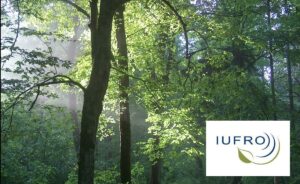5 Shocking Things You Didn’t Know About Forests Revealed at Major Conference!
This year’s IUFRO Congress focused on forests beyond just carbon storage. It emphasized a holistic view, including social and cultural roles, and integrating bioeconomies for efficient resource use. While participation from lower-income countries was lacking, the need for broader stakeholder involvement (policymakers, developers) was highlighted to translate science into real-world action for climate change and sustainability.
CONTENTS: 5 Shocking Things You Didn’t Know About Forests Revealed at Major Conference!

Forests, climate, society, future, solutions
5 Shocking Things You Didn’t Know About Forests Revealed at Major Conference!
As the Climate and Bioeconomy Lead at SEI Asia, I recently participated in the 2024 International Union of Forest Research Organizations (IUFRO) Congress, a significant event occurring once every five years. This Congress serves as a pivotal platform for discussing the critical roles forests play in global ecological health and climate resilience.
The 2024 Congress was marked by high participation and featured numerous sessions covering a wide range of topics. It highlighted the increasing global recognition of forests’ importance in our ecological systems. While summarizing the extensive content of the sessions comprehensively is challenging, several overarching themes emerged prominently.
Forests: beyond carbon, holistic view
5 Shocking Things You Didn’t Know About Forests Revealed at Major Conference! This year’s Congress marked a shift towards a more holistic understanding of forests, moving away from a decade-long emphasis primarily on the carbon sequestration benefits of tree-planting, which may have been disproportionately highlighted or misunderstood.
Discussions expanded to recognize the diverse ecological, socio-economic, and cultural roles and services provided by forests and agroforestry systems, particularly for Indigenous Peoples and local communities (IPLC). This broader perspective is critical for developing integrated strategies that view forests not solely as carbon sinks but as integral components of local and regional ecosystems, offering a wide array of social, cultural, and environmental advantages.
Forest bioeconomy, circularity, inclusivity needed
5 Shocking Things You Didn’t Know About Forests Revealed at Major Conference! At the recent IUFRO Congress, a recurring theme centered on integrating the concepts of bioeconomy and circular economy into forestry research across various domains.
These topics were frequently referenced, even in sessions where they weren’t the primary focus. Discussions emphasized the importance of unified perspectives to enhance the efficient use of forest resources and harvested biomass, particularly for enhancing climate resilience.
During the closing plenary, Hans Joachim Schellnhuber, current Director of the International Institute for Applied Systems Analysis and former Director of the Potsdam Institute for Climate Impact Research, highlighted the potential of woody biomass for carbon sequestration through durable products. His concept of “re-timbering” cities presented a novel strategy for achieving negative emissions crucial for climate stabilization.
5 Shocking Things You Didn’t Know About Forests Revealed at Major Conference! Despite the robust discussions, certain areas were noticeably underrepresented at the Congress. The integration of perspectives and knowledge from lower and middle-income countries could have been more prominently featured.
Issues such as travel costs and participation barriers for developing countries, along with insufficient funding for research on tropical and sub-tropical forest resources, were highlighted.
Research funding disparities were noted, with a focus on temperate forests in Europe and North America receiving more support despite their lesser impact on climate and biodiversity compared to tropical regions facing deforestation and land degradation pressures.
Additionally, non-forest resources like bamboo and rattan, critical in lower and middle-income regions, received limited attention at the Congress due to their non-tree status. Emphasizing these resources, akin to agroforestry, could enrich future Congress discussions and integrate them more thoroughly into mainstream forest science and policy.
Forests: science to action, global impact
5 Shocking Things You Didn’t Know About Forests Revealed at Major Conference! The IUFRO Congress 2024 predominantly attracted researchers and scientists, underscoring its focus on forest research and science. However, there is significant value in expanding participation to include policymakers, project developers, and financiers from various sectors.
These stakeholders play crucial roles in translating forest science into actionable policies and projects that can effectively impact biodiversity, climate resilience, and climate stabilization.
The Congress highlighted the multifaceted importance of forests in our environment and emphasized the ongoing need for inclusive discussions and approaches in forest science and policy. Looking ahead, it is essential to cultivate a comprehensive understanding and application of forest sciences to support global efforts against climate change and to promote ecological sustainability.
Check out TimesWordle.com for all the latest news
You must be logged in to post a comment.